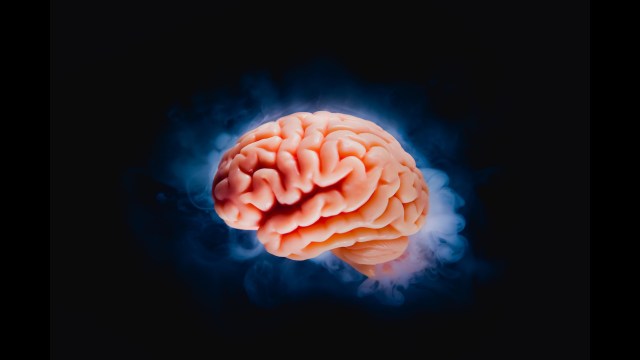In today’s fast-paced, hyperconnected world, screens have become an integral part of our daily lives. From the moment we wake up to the time we go to bed, we are surrounded by digital devices—phones, computers, tablets, televisions—each offering a constant stream of information, entertainment, and communication. While these devices have revolutionized the way we live, work, and interact with the world, they have also introduced new challenges, particularly when it comes to mental health. The rise of digital technology has led to an increased need for digital detox, a concept that has gained significant attention in recent years as a way to counteract the negative effects of screen time on our well-being.
A digital detox is essentially a period of time during which an individual disconnects from electronic devices to rejuvenate, restore mental clarity, and improve overall health. In this article, we explore the concept of a digital detox in depth, shedding light on the science behind screen time’s impact on mental health and how taking a break from screens can improve emotional well-being, cognitive function, and physical health.
The Digital Age and Mental Health: A Double-Edged Sword
Digital devices and the internet have undoubtedly transformed society, making it easier to communicate, access information, and engage with people across the globe. However, this technological revolution has come at a cost. Research has increasingly shown that excessive screen time—especially on social media platforms, gaming, or consuming digital content—can have significant implications for mental health.
For instance, numerous studies have linked excessive social media use to feelings of loneliness, anxiety, and depression. The constant comparison to idealized versions of other people’s lives, often portrayed on platforms like Instagram or Facebook, can lead to negative body image, low self-esteem, and a distorted sense of reality. Furthermore, the bombardment of information and notifications can cause cognitive overload, making it difficult to focus, think clearly, or relax.
In addition to social media, the rise of video games, streaming services, and digital entertainment has introduced another layer of concern. While these activities can be enjoyable and provide a sense of escape, excessive engagement can lead to addiction, sleep disturbances, and increased levels of stress. The constant engagement with screens can disrupt the natural rhythms of the brain, leading to mental fatigue, emotional exhaustion, and burnout.
This is where the concept of digital detox comes in. Taking time away from screens allows us to step back from the overstimulation of the digital world and reconnect with our physical surroundings and inner selves. It’s a form of self-care that provides numerous benefits for our mental health, helping us to regain balance, focus, and emotional well-being.
The Science Behind Digital Overload
To understand why a digital detox is so important, we first need to examine the science behind the impact of screens on our brains and mental health. The modern digital landscape is designed to keep us engaged, and this constant stimulation can have both short-term and long-term effects on the brain.
One of the most significant effects of prolonged screen use is the impact on our attention span. The human brain is not built to process constant streams of information from multiple sources simultaneously. Studies have shown that multitasking, which is often associated with digital device use, can actually reduce our cognitive performance and decrease the ability to retain information. The constant switching between tasks—whether it’s checking email, scrolling through social media, or watching videos—can lead to mental fatigue and a decrease in productivity.
Additionally, the dopamine-driven nature of digital devices plays a significant role in how our brains respond to screens. Dopamine, often referred to as the “feel-good” neurotransmitter, is released when we experience something rewarding, such as receiving a notification, a new “like” on social media, or winning a level in a game. The more we interact with screens, the more we are conditioned to seek these instant gratifications, which can lead to addictive behavior and a constant need for stimulation. This cycle can affect our ability to find satisfaction in less stimulating, real-world activities, making it harder to relax, focus, and engage in meaningful interactions with others.
Furthermore, the blue light emitted by screens can interfere with our sleep patterns. Exposure to blue light, especially in the evening, disrupts the production of melatonin, the hormone that regulates sleep. This leads to difficulty falling asleep and poor-quality sleep, both of which are linked to increased levels of stress, anxiety, and depression. Over time, sleep deprivation can have a serious impact on our overall mental health, further exacerbating the negative effects of excessive screen time.
The Psychological Benefits of a Digital Detox
Given the overwhelming evidence of the negative effects of excessive screen time on mental health, it’s clear that taking a break from screens can offer a much-needed respite. A digital detox allows individuals to reclaim control over their attention, emotions, and well-being. Here are some of the key psychological benefits of disconnecting from digital devices:
Reduced Anxiety and Stress
One of the immediate benefits of a digital detox is a reduction in anxiety and stress levels. Constantly checking emails, social media notifications, and news updates can create a sense of urgency and information overload. This can trigger the “fight or flight” response, leading to heightened levels of stress and anxiety. By disconnecting from digital devices, we give our brains the opportunity to relax and reset, reducing the mental burden caused by constant digital engagement.
Research has shown that taking time away from screens can significantly lower cortisol levels, the hormone responsible for stress. Engaging in offline activities, such as spending time in nature, practicing mindfulness, or connecting with loved ones face-to-face, can promote a sense of calm and emotional balance.
Improved Focus and Cognitive Clarity
Another psychological benefit of a digital detox is improved focus and cognitive clarity. When we take a break from screens, we allow our brains to recover from the constant distractions that come with digital devices. This allows us to regain the ability to concentrate on tasks for longer periods of time without being sidetracked by notifications or the urge to check our phones.
Studies have shown that prolonged screen use can impair our ability to focus and retain information. By engaging in activities that don’t involve screens, such as reading, journaling, or practicing a hobby, we can enhance our cognitive function and mental clarity. A digital detox helps to reset the brain’s ability to process information and be present in the moment.
Enhanced Emotional Well-Being
Taking a break from digital devices can also improve emotional well-being by fostering deeper, more meaningful connections with others. Digital communication, while convenient, often lacks the emotional depth and authenticity of face-to-face interactions. Social media, in particular, can create a false sense of connection, leading to feelings of loneliness and isolation.
When we disconnect from screens and engage in real-world interactions, we are more likely to experience positive emotions such as joy, empathy, and gratitude. Spending quality time with friends, family, or pets, engaging in creative activities, or volunteering can improve mood and enhance our sense of purpose. These offline experiences offer a more genuine and fulfilling form of social connection, which can significantly boost our emotional well-being.
Better Sleep and Rest
A key benefit of a digital detox is improved sleep quality. As mentioned earlier, the blue light emitted by screens can interfere with the production of melatonin, making it harder to fall asleep. By taking a break from screens—especially before bedtime—we can restore the natural rhythms of our sleep-wake cycle.
In addition to improving sleep, a digital detox can also help us develop healthier bedtime routines. Instead of scrolling through social media or watching television late into the night, we can engage in calming activities such as reading, meditation, or listening to soothing music. These activities promote relaxation and prepare the body and mind for restful sleep.
How to Successfully Implement a Digital Detox
While the benefits of a digital detox are clear, it’s not always easy to disconnect from screens, especially in a world where digital devices are so deeply embedded in our daily lives. However, with a little planning and commitment, it’s possible to take a break from screens and experience the positive effects on mental health.
The first step is setting clear boundaries around screen time. This might involve designating certain times of the day to be screen-free, such as during meals or before bed. Some people choose to take full days off from screens, while others prefer to gradually reduce their screen time over the course of a week.
Another helpful strategy is to replace screen time with other activities that promote relaxation and well-being. Going for a walk in nature, practicing yoga, reading a book, or engaging in a creative hobby are all great ways to unwind without relying on digital devices.
It’s also important to remember that a digital detox doesn’t mean completely abandoning technology. Instead, it’s about finding a healthy balance between screen time and offline activities. By setting limits on our digital consumption and prioritizing real-world connections and self-care, we can reap the mental health benefits of a digital detox without completely disconnecting from the modern world.
The Long-Term Impact of Digital Detox on Mental Health
The benefits of a digital detox are not limited to the immediate effects of reduced stress and improved focus. Over time, taking regular breaks from screens can have a profound impact on mental health and overall well-being. Studies have shown that individuals who engage in regular digital detoxes experience improved emotional regulation, better relationships, and increased levels of life satisfaction.
In addition, a digital detox can help us reconnect with our sense of self and rediscover activities that bring us joy and fulfillment. When we step away from the constant noise of the digital world, we create space for introspection, creativity, and personal growth. This can lead to a greater sense of purpose and a more balanced, fulfilling life.
Conclusion: Reclaiming Balance in a Digital World
In a world where screens are omnipresent, taking a digital detox has become more important than ever. The constant barrage of information, notifications, and social media updates can overwhelm the mind, leading to stress, anxiety, and burnout. However, by disconnecting from digital devices, we can restore balance, improve mental clarity, and enhance our overall well-being.
A digital detox offers an opportunity to step away from the overstimulation of the digital world and reconnect with ourselves and the world around us. It’s a powerful tool for improving mental health, fostering meaningful relationships, and finding peace in a chaotic world. By embracing the practice of digital detox, we can regain control over our attention, emotions, and happiness, creating space for a healthier, more mindful way of living.






